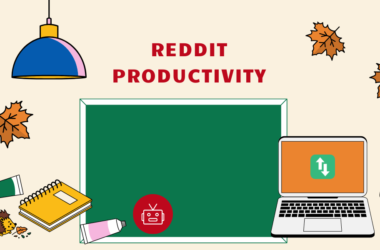Table of Contents Show
Do you find it difficult for saving time in your life to get more done? We all know that time management is a crucial skill for success in any role, but it’s especially important for those in management positions. With so many tasks to juggle and limited time in the day, it can be challenging to stay organized and prioritize effectively. We show you the best time saving tips for you here.
That’s why we’ve put together this blog post with 23 time-saving tips specifically tailored for managers like you. Whether you’re a seasoned pro or just starting out, we’ve got some practical strategies that will help you make the most of your time and achieve your goals more efficiently. So grab a cup of coffee, sit back, and let’s dive in!
Top Time Saving Tips For Busy Managers
Let us look at some of the best time saving tips you an use to make your life more productive.
1. Set clear goals and prioritize tasks
One of the first steps in effective time management is setting clear goals. By identifying what needs to be accomplished and establishing priorities, managers can focus their time and energy on the most important tasks. Start each day by creating a to-do list and ranking tasks based on their urgency and importance. This will help you stay organized and ensure that you’re working on the most critical tasks first.
2. Delegate tasks and empower your team
Delegation is a key skill that managers should master to save time. Identify tasks that can be assigned to your team members and delegate accordingly. This not only helps in distributing the workload but also empowers your team members by giving them the opportunity to develop new skills and take ownership of their work. Effective delegation allows managers to focus on higher-level tasks and strategic planning.
As a manager, it is important to recognize that you cannot do everything yourself. Delegating tasks to your team members not only helps you save time but also empowers them and promotes their growth and development. Evaluate your tasks and identify ones that can be delegated to others. Clearly communicate expectations, provide necessary resources and support, and trust your team members to deliver. Delegating tasks allows you to focus on high-priority tasks and ensures that all tasks are completed efficiently.
3. Use technology to your advantage
In today’s digital age, there are countless tools and software available to help streamline tasks and save time. Take advantage of project management tools, communication platforms, and automation software to streamline processes and increase efficiency. Utilize tools such as Trello or Asana to create and manage tasks, Slack or Microsoft Teams for communication, and tools like Zapier or IFTTT for automating repetitive tasks. By using technology effectively, managers can save time and focus on more important responsibilities.
4. Minimize distractions and time-wasting activities
Distractions can significantly eat up valuable time. To manage time effectively, it’s important to minimize distractions and avoid time-wasting activities. This can include turning off notifications on your phone or computer, setting specific times for checking emails and messages and creating a dedicated workspace free from distractions. By creating a focused work environment, managers can be more productive and accomplish tasks more efficiently.
5. Practice effective communication
Communication plays a vital role in time management. Managers should prioritize clear and concise communication with their team members, stakeholders, and clients. This can help avoid misunderstandings, reduce the need for follow-up meetings or emails, and save time overall. Use tools such as project management software, video conferencing platforms, and instant messaging apps to facilitate effective communication and keep everyone on the same page.
Clear and effective communication is crucial for effective time management. Make sure you clearly communicate your expectations and deadlines to your team members. Provide regular updates on project progress and any changes in priorities. Encourage open and honest communication, so that any potential issues or roadblocks can be identified and addressed early on. By practicing effective communication, you can avoid miscommunication and misunderstandings, save time on unnecessary back-and-forth, and keep everyone on the same page.
6. Plan and schedule your time
Proactive planning and scheduling can go a long way in managing time effectively. Set aside time each day or week to plan and schedule your tasks. Use a calendar or scheduling tool to block out time for specific activities, meetings, and deadlines. Prioritize your tasks based on their importance and urgency, and allocate time accordingly. By planning and scheduling your time, you can ensure that you have enough time for each task and avoid last-minute rush or missed deadlines.
7. Learn to say no
One of the most effective time-saving tips for managers is learning to say no. It’s important to understand your limitations and not take on more tasks or responsibilities than you can handle. Prioritize your tasks and be realistic about what you can accomplish within a given timeframe. If you’re already overwhelmed with work, don’t be afraid to politely decline additional tasks or delegate them to someone else. Saying no can help you maintain focus on your priorities and manage your time more effectively.
8. Take regular breaks and recharge
While it may seem counterintuitive, taking regular breaks can actually help improve time management. Studies have shown that taking short breaks throughout the day can improve focus, productivity, and overall well-being. Schedule short breaks in your workday to rest and recharge. Use this time to step away from your desk, stretch, take a walk, or engage in activities that help you relax and recharge. By taking regular breaks, you can prevent burnout and maintain productivity throughout the day.
9. Continuously evaluate and optimize your time management strategies
Time management is not a one-time task; it requires continuous evaluation and optimization. Regularly assess your time management strategies and identify areas for improvement. Analyze how you spend your time, identify any time-wasting activities or habits, and find ways to eliminate or minimize them. Look for opportunities to streamline processes, automate tasks, or delegate responsibilities to free up more time for important tasks. Keep track of your progress and make adjustments as needed. By continuously evaluating and optimizing your time management strategies, you can become more efficient and productive in managing your time.
10. Set realistic SMART goals and deadlines
Setting unrealistic goals or deadlines can lead to unnecessary stress and overwhelm. Instead, set realistic goals and deadlines based on your capabilities and resources. Break big tasks into smaller, manageable chunks and assign timeframes for each one. This will help you stay focused and motivated, as you can see progress being made. By setting realistic goals and deadlines, you can avoid feeling overwhelmed and ensure that you are able to complete tasks on time.
11. Avoid multitasking
Contrary to popular belief, multitasking is not an effective way to manage time. In fact, it can often lead to more mistakes, decreased productivity, and increased stress. Instead of trying to do multiple tasks at once, focus on one task at a time. Prioritize your tasks and give each one your full attention until it is completed. This will allow you to work more efficiently and produce higher-quality results. By avoiding multitasking, you can save time and improve your overall time management skills.
12. Use technology to your advantage
There are countless time-saving tools and apps available that can help you manage your time more efficiently. Take advantage of these technological advancements to streamline your processes and automate repetitive tasks.
Use project management software to keep track of tasks, deadlines, and progress. Utilise calendar apps to schedule meetings and events. Use email management tools to organize and prioritize your inbox. These tools can help you stay organized, save time, and ensure that nothing falls through the cracks.
13. Streamline meetings
Meetings are an integral part of any manager’s day. However, they can often become time-consuming and unproductive. Streamlining meetings is a great way to save time and increase efficiency. Here are a few tips to help you make the most of your meeting time:
- Set an agenda: Before every meeting, create a detailed agenda outlining the topics to be discussed. This will keep the conversation focused and ensure that everyone is on the same page.
- Stick to the schedule: Start and end meetings on time. Avoid running over the scheduled time unless absolutely necessary. Respect everyone’s time and keep the meeting concise.
- Limit participants: Only invite necessary participants to the meeting. The more people present, the more time it takes to reach decisions and discuss ideas. Be selective and invite only those who can actively contribute to the discussion.
- Prioritize topics: If you have multiple items to discuss, prioritize them according to urgency or importance. Address the most critical matters first to ensure they receive adequate attention.
- Encourage preparedness: Circulate meeting materials in advance, so participants have time to review and prepare. This will help avoid unnecessary delays and ensure everyone is ready to contribute.
- Use technology: Leverage technology tools like video conferencing and project management software to streamline virtual meetings. These tools can help you save time by eliminating the need for travel and simplifying collaboration.
- Set time limits: Allocate a specific amount of time for each agenda item.
14. Automate repetitive tasks
You can automate repetitive tasks to save time and increase efficiency. There are several tools and techniques that can help you automate these tasks:
- Use task management software: Use task management software to create, assign tasks to team members, and set deadlines. This eliminates the need for manual follow-ups and reminders.
- Use email filters and autoresponders: Set up filters in your email client to automatically sort incoming emails into different folders based on specific criteria. You can also set up autoresponders to send pre-written responses to common inquiries or requests.
- Use templates: Create templates for commonly used documents, such as emails, reports, or presentations. This saves time by allowing you to simply fill in the necessary information instead of starting from scratch each time.
- Automate data entry: Use tools to automate data entry tasks, such as transferring information from one system to another. This reduces manual errors and saves time that would otherwise be spent on repetitive data entry.
- Use scheduling tools: Use scheduling tools like Calendly or Doodle to streamline the process of setting up meetings or appointments. These tools allow participants to choose the most convenient time from their available slots, eliminating back-and-forth communication.
Read this blog:
8 Email Marketing Hacks That Deliver Results
15. Take regular breaks
Taking regular breaks is important for maintaining productivity and managing your time effectively. It may seem counterintuitive, but taking breaks actually helps you stay focused and refreshed. Here are a few tips for incorporating regular breaks into your work routine:
- Stretch and move: Sitting for long periods of time can lead to fatigue and decreased productivity. Take short breaks every hour to stretch, walk around, or do some light exercise. Not only will this help you physically, but it can also clear your mind and improve concentration.
- Disconnect from technology: Constantly being connected to devices can be draining and distracting. Take regular breaks from your phone, computer, and other devices to give your brain a rest. Use this time to engage in activities that relax or energize you, such as reading a book, going for a walk, or practicing mindfulness.
- Socialize: Taking breaks to socialize with coworkers can improve team cohesion and provide a mental break from work. Use your breaks to chat with colleagues, have a coffee together, or engage in some light-hearted conversation. Building positive relationships in the workplace can also help reduce stress and improve job
16. Use the Pomodoro Technique

Use a Pomodoro technique to manage you time well, and that can help you become product by taking equally divided work intervals, and breaks.
To incorporate the Pomodoro Technique into your work routine, start by setting a timer for 25 minutes and work on a specific task during that time. Once the timer goes off, take a short break to stretch, move around, or do something enjoyable. Then, set the timer for another 25 minutes and repeat the process until you have completed four pomodoros.
Taking regular breaks is important for maintaining productivity and managing your time effectively. It may seem counterintuitive, but taking breaks actually helps you stay focused and refreshed.
17. Continuously learn and improve
To effectively manage your time as a manager, it’s important to learn and improve your skills continuously. This can involve staying up-to-date with industry trends, attending seminars or workshops, or even taking online courses. By investing in your own development, you can become more efficient and effective in your role, ultimately saving time in the long run.
18. Stay organized
Staying organized helps you save most of your time. It’s much easier to manage your time effectively when you have a clear system in place. Keep your workspace tidy and organized, both physically and digitally. Use folders and labels to categorize your files and documents, and create a to-do list or use a task management app to keep track of your priorities. By staying organized, you can quickly and easily find what you need, avoid wasting time searching for things, and stay focused on the task at hand.
19. Practice time blocking
Time blocking is a time management technique where you schedule specific blocks of time for different tasks or activities. It helps you stay focused and avoid multitasking, which can actually decrease your productivity.
Start by identifying your most important tasks for the day and allocate dedicated time blocks for each task. For example, you can set aside the first hour of your day for emails, the next two hours for focused work, and the last hour for meetings or team collaboration. By sticking to your schedule and avoiding distractions, you can make the most of your time and accomplish more in less time.
20. Practice self-care
Self-care can help you keep productive, and manage your time properly. It’s easy for managers to get caught up in their work and neglect their own well-being. However, taking care of yourself is crucial for maintaining productivity and effectively managing your time. Make sure to prioritize self-care activities such as exercise, meditation, and getting enough sleep. These activities can help you recharge and stay focused throughout the day, ultimately saving you time in the long run.
Check this out:
How To Build Your Personal Brand In A Few Easy Steps?
21. Use time-saving shortcuts and techniques
Keyboard shortcuts can be a game-changer when it comes to saving time. Take the time to learn and master the shortcuts for the tools and software you use on a daily basis. Whether it’s a simple copy-and-paste shortcut or a more complex shortcut for formatting text, utilizing these shortcuts can significantly speed up your workflow.
22. Outsource non-essential tasks
Outsourcing is another way to save your precious time as a manager. Identify tasks that are non-essential or can be done by someone else, and delegate or outsource them. This could include administrative tasks, data entry, or even social media management. By freeing up your time from these tasks, you can focus on more important and strategic tasks that require your expertise.
23. Prioritize self-reflection and evaluation
Taking the time to reflect on your time management practices and evaluate their effectiveness is crucial. Regularly assess how you are spending your time and identify areas for improvement. Are there any tasks or activities that are taking up too much of your time without adding much value? Are there any areas where you could be more efficient or streamline processes? By regularly evaluating and making adjustments, you can continuously improve your time management skills and save valuable time.
Conclusion
By implementing these time-saving tips, managers can effectively manage their time, increase productivity, and achieve better work-life balance. Remember, time management is a skill that can be developed and improved over time, so be patient with yourself and keep experimenting with different strategies until you find what works best for you.
More Readings For You:










